Successful life of a Biomedical Laboratory Equipment Engineer
Jeffrey Stanley is a Biomedical Laboratory Equipment Engineer and works for Select Laboratory Partners and its sister company CellSolutions. He supports analysis equipment and other medical lab diagnostic testing instruments for Clinical Chemistry, Immunochemistry, Haematology, Urinalysis, Toxicology and Cytology.
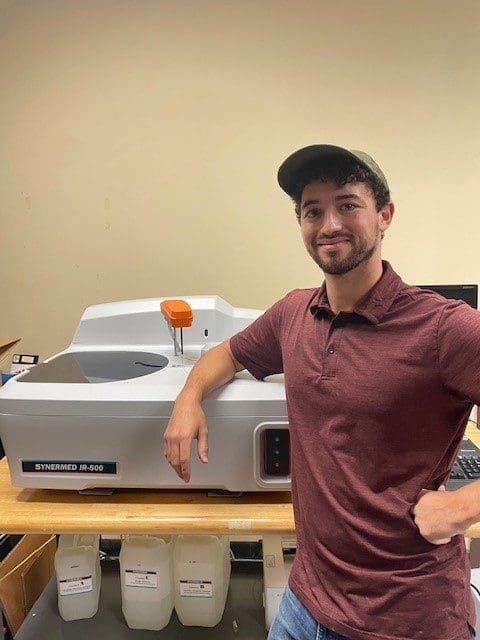

Jeffery Stanley a Biomedical Laboratory Equipment Engineer from North Carolina
Background and path to biomedical engineering
Were you interested in science and engineering when you were a child? Did you have any hobbies that led you into science?
Yes. Science was always my strongest subject in school. Even if at the time, I wasn’t thinking about making it a career.
As a child I enjoyed taking toys apart and trying my best to put them back together. I spent many afternoons attempting to improve my RC (remote control) plane by removing weight so the plane could fly faster and longer.
Was there anyone in your family or high school who guided you towards forensic science? Has there been a particular person who has inspired you?
My older brother definitely influenced my interests and eventually my career path. When you have seen someone you look up to building and tinkering and being so involved in STEM (science, technology, engineering and mathematics) extracurricular, it leaves an impression.
I remember a particular occasion my older brother let me work on his senior project with him. We made an automated telescope from old remote control (RC) car parts. The feeling of being useful and valued for my skills really stuck with me.
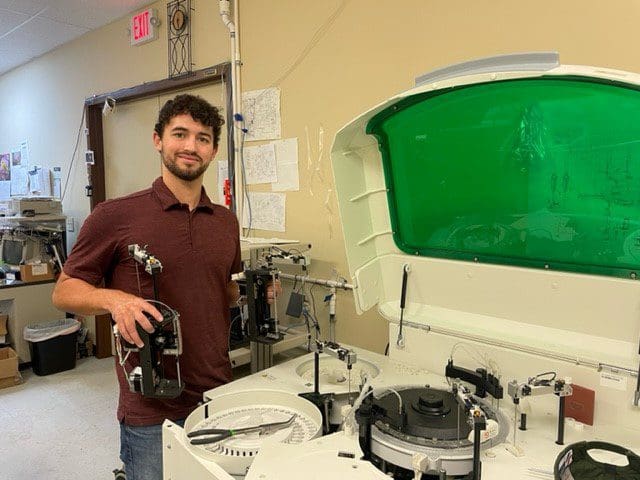

Typical day as a Biomedical Laboratory Equipment Engineer
What’s your typical day like?
On a normal day in the service office, my manager informs me of the upcoming Preventative Maintenance schedule. So I can then plan my work and travel between sites accordingly. We maintain labs across the country. Therefore, I try to leave enough time while at each site to assist with any other issues that might have come up since our last visit.
When I’m not doing preventative maintenance:
I’m travelling to new lab sites for instrument installs;
Doing repairs as needed;
Making sure all the instruments are ready for shipment as orders come in.
What happens when a new ticket is opened?
When a new ticket is opened, I check it regardless of which department it was sent from. Often, I offer advice if I am confident on the issue from previous experience with the instrument.
If the ticket is sent to the engineering department, I call the customer so we can talk through the issue together. They can explain to me what led up it or if this a repeating issue. I can log on remotely and check alarm codes and log files. If it’s an issue that can’t be solved over the phone or remotely, I schedule a service visit with the customer as soon as possible.
Time onsite
How much of your time is spent on site and how much with admin and other tasks?
In a field service position, there are a lot of things that aren’t for certain. Things aren’t always going to play out the way you expect them to. You may plan on staying on a lab site for a couple of days. Then it turns out the issue is solved in a matter of minutes. One thing, however, is always guaranteed – paperwork. I would estimate 60% of my time is spent at a lab site trouble shooting or repairing the instrument. The other 40% is the administration work needed to document everything I accomplished, used, or spent money on. We have good systems in place for admin work with the help of the service manager, it’s usually a breeze.
Staying in touch out in the field
Being out in the field can be lonely. How do you stay in touch during the working day?
I have a great team of engineers and colleagues back at home. I am in communication with them whether I need help or just to check in.
It does get lonely out on your own. The only interaction you get is from customers and the employed staff at the labs. I am lucky to have built a good relationship with the staff at my accounts so it can be fun to see familiar faces and catch up.
At the end of each workday, I communicate with my service manager about instrument status and how things are going. Days on the road can be hard. However, with all this technology at my fingertips, I know my wife and family are only a call or text away. That means, I never feel out of the loop. After hours, I am a huge sports fan. If there’s a sporting event to watch, I know it’s going to be a good night.
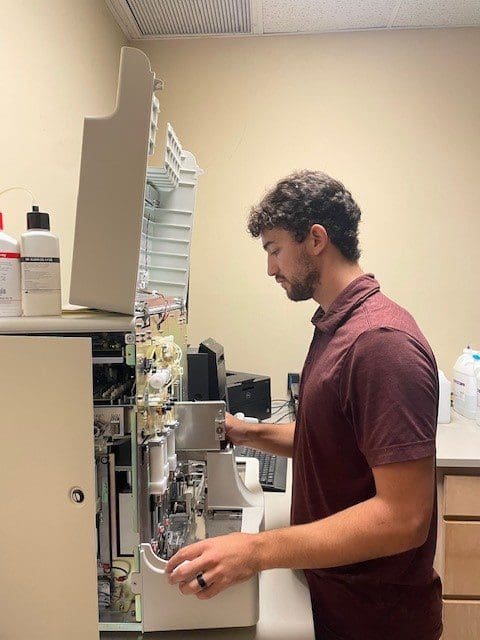

Equipment used as a Biomedical Laboratory Equipment Engineer
Can you outline the equipment you work on?
I work with many different types of instruments from Chemistry Analyzers, Haematology Instruments, Digital Cytology Slide Scanners, and Automated Liquid Handlers as well.
Chemistry analyzer –IR500/IR1200
Haematology instrument- Mindray3600/5390
Automated liquid handler – CS-F50, CS-30, CS-120
Digital cytology slide scanner – P250 and P1000
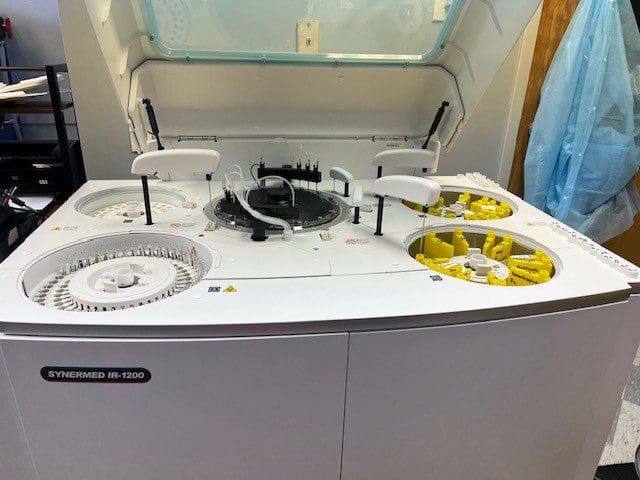

What’s the best piece of equipment you have ever worked on?
The best piece of equipment I worked on would be the P250 (fully automated digital slide scanner for cytology). I had the opportunity to go to Germany to learn the P250. So I will always be a bit biased when it comes to my favourite instrument. The P250 is also a newer instrument to our department, and I love having the opportunity to work on something new. It still fascinates me how many new Instruments are developed each year.
Most challenging part of the job as a Biomedical Laboratory Equipment Engineer
What do you find most challenging when you are working – technical side, people/customers or logistics (travel etc)?
The most challenging aspect for me would be the logistics. There are so many outside factors I have no control over that effect timing. The shipping of heavy instruments can delay me at a site. Flights to and from sites have been delayed or cancelled, snowballing more time constraints for everyone. Sometimes, I will be on a service call and expect the issue will be solved in a couple of hours only to find out that I need a new part sent to me. Not only does it delay my travel plans home, but it also affects my next client as well. I try to plan “down days” in between service calls. This is an attempt to absorb the delay. However, it does leave me running from site to site to keep on schedule. Don’t even get me started on extending a car rental when you’ve pre-booked.
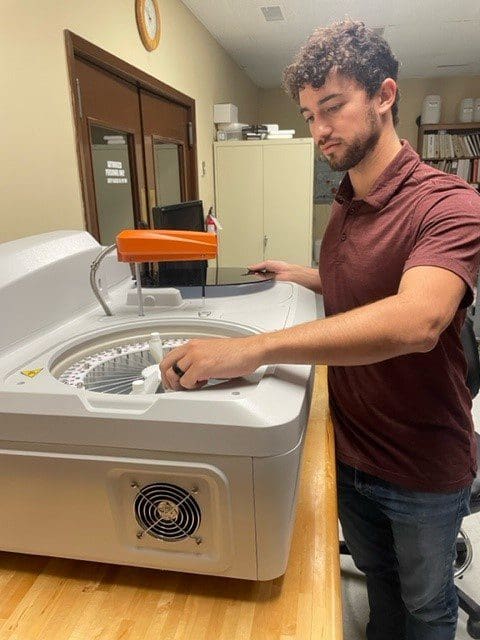

Making a winner
What makes the type of engineer who is tomorrow’s senior engineer or team leader?
In my opinion, to make that leap to senior engineer/team leader, you need to have the ability to manage many different personality types. Just like a coach of a sports team, you have to learn to manage a lot of people at once. Not everyone thinks alike (which is good) but it’s a key skill to keep everyone motivated and involved. When your team feels confident in themselves and their contribution to the team, the workplace has the potential to run like a well-oiled machine under your guidance.
How important is ongoing training?
Ongoing training is crucial because I work with many different types of instruments on an ongoing basis. I use training as a refresher, but what makes training important is that you get the ability to understand the science of what is happening with the assay To dig deeper and have a more complete understanding of the instrument itself but also the purpose. A lot of folks can turn a screwdriver, but actually knowing what is happening and why, can help an individual troubleshoot and solve issues more effectively. Keeping everyone up to date on the processes helps to eliminate error and keeps everyone accountable.
Mentors
How key is it to have a mentor and a good team supporting each individual engineer?
Having a supportive mentor is extremely important. You feel like you can do anything when you know there’s a team in your corner to help you out. Having a supportive mentor puts you in a position to succeed no matter the situation or career field even. In my personal work environment, my manager sets me up for success even when I am still learning. He allows me the time and space to troubleshoot the issues even when he knows the problem and solution right away. He is benefiting the team allowing me to make mistakes and eventually figuring it out. I feel empowered to rise to the occasion and show my worth for the team. This is giving me more troubleshooting skills and improving my overall growth.
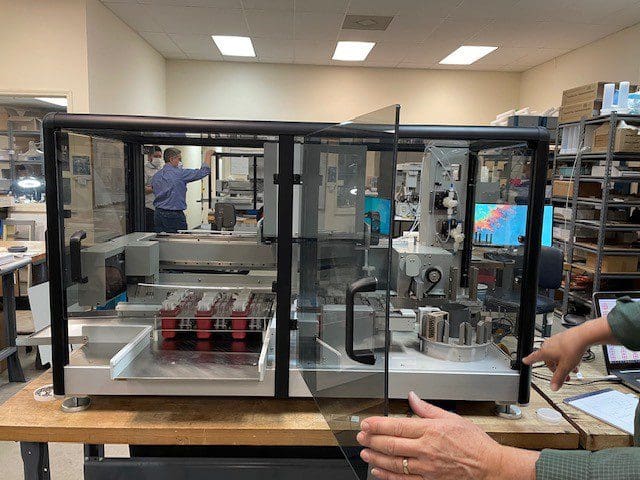

Augmented Reality (AR) and Remote Support used as a Biomedical Laboratory Equipment Engineer
Organisations are using AR and remote support more and more. How can field engineers prepare themselves for how their jobs will change?
Having access to log on remotely is a useful tool for field engineers. It’s nice to know what to expect from an instrument before you get there, or to have the ability to talk a customer through the issues and how to solve it with your guidance. I think the job is changing for the better with the remote access field engineers now have, but I don’t think it will stop the field work(travel). Many issues I encounter need an expert to handle them. Parts need proper replacement due to wear and tear. Remote access is giving us information that often helps shorten our service call time by allowing us to troubleshoot a diagnosis before we even step foot on the site.
New field engineers
What advice would you give to someone who has just started their first job as a field engineer?
The best ability is adaptability. The work of a field engineer is fast paced… until it isn’t. As I mentioned before, you never know the curveballs you will be thrown or how it will affect the outcome. Being able to roll with the punches and changing gears on a dime helps you stay proficient at your work and keeps you (hopefully) stress free. Solid communications skills are key in any customer service job whether you are communicating with your boss or more importantly a client. Having respect for the company you represent is vital for keeping up strong client relationships. When your client is happy, your company is happy, and when your company is happy, you are happy.
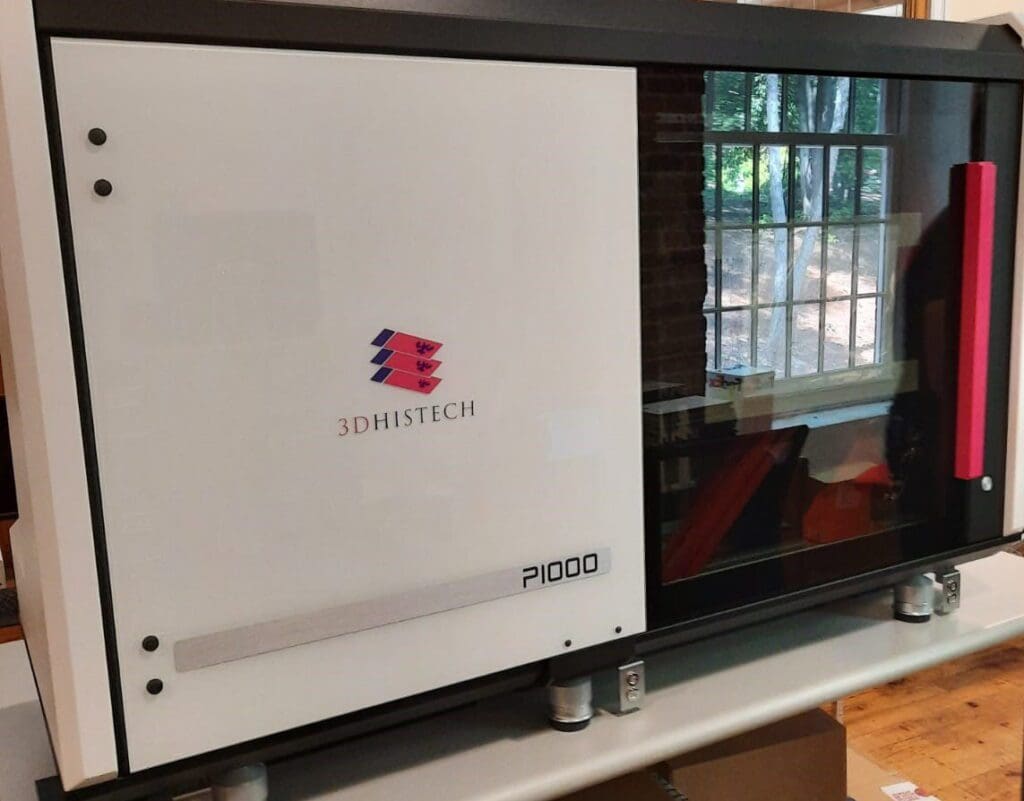

If you would like to work with Jeffery, Select Laboratory Partners are hiring.
Further reading
Life of a Biomedical Engineer in Canada


Responses